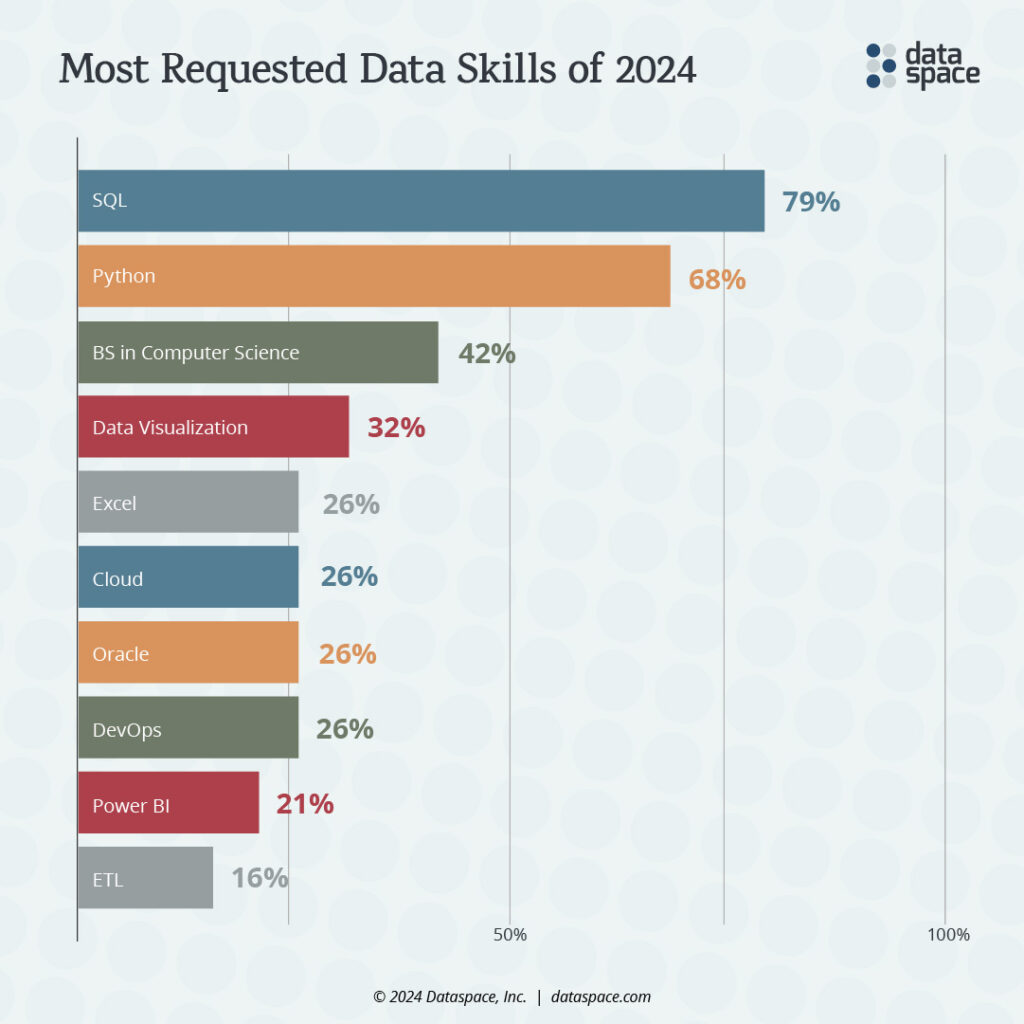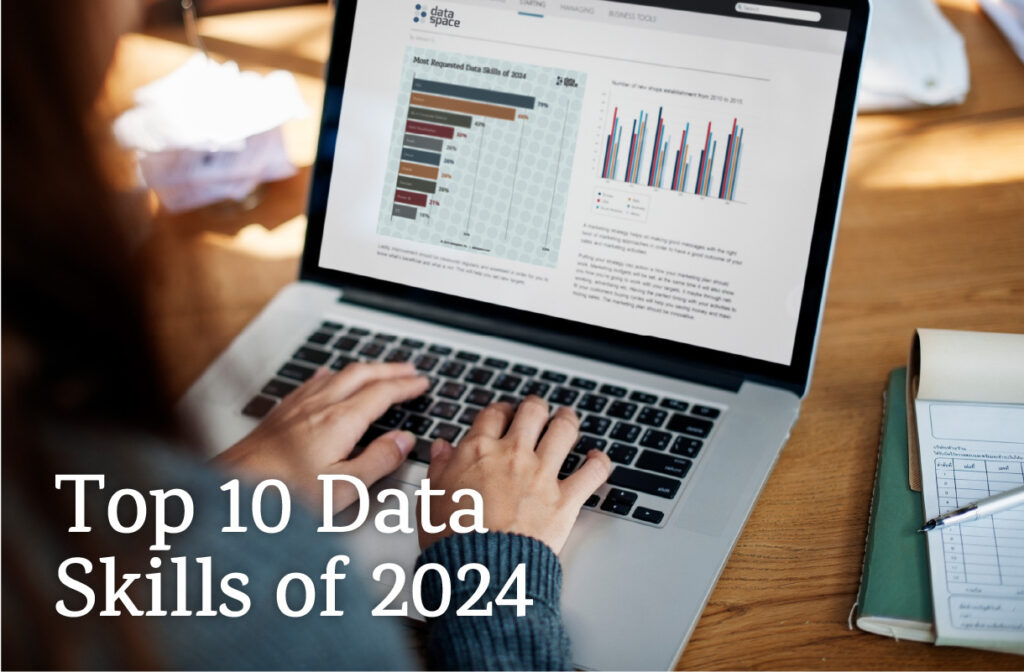As we wrap up 2024, we like to take some time to reflect on the roles we worked on and the candidates we spoke to throughout the year. We also like to tally up the skills that were required for those roles and share with you the 10 most in-demand data and analytics skills we saw in 2024.
While the jobs we work on are only a small portion of all the data-related roles out there, our list still provides some broad strokes of what knowledge is key in the industry. Interestingly, as the general discussion in technology seems to be ever dominated by artificial intelligence and large language models, we actually saw more emphasis on fundamentals in the past year (which was contrary to our expectations).

The top 10 data skills of 2024
- SQL – Coming in at number one is SQL or Structured Query Language. It had the highest prevalence, with 70% of the roles we worked on requiring it, which speaks to how commonly it’s used throughout the data world. This is certainly no surprise. If you’ve seen any of our past data skills countdowns, SQL is always among the top.
- Python – With its vast libraries and ability to support complex machine learning algorithms, Python came in second to SQL, with 68% of jobs requiring it. Again, no surprise here—it’s the most-used programming language in data-related fields.
- Bachelor’s Degree in Computer Science – A new one to our top 10, this year 42% of our clients sought candidates with a BS in Computer Science. It’s an interesting trend that could be an indicator of how inundated the hiring pool is with job seekers. Employers may be trying to separate those who relied on alternative education opportunities (like boot camps) for their data and analytics skills from those with a solid foundation in computing.
- Data Visualization – A common requirement for data analysts these days is experience creating data visualizations and telling stories with data. 42% of our roles sought candidates experienced working with data visualization tools like Power BI and Tableau. It’s not only key that analysts be able to crunch numbers; they must also be proficient at helping an organization understand its data, which means creating the charts and graphs required to make trends and conclusions clear.
- Excel – Excel is a universally used tool that’s ubiquitous in business and technology. The fact that 26% of our jobs called it out specifically indicates its prevalence isn’t going anywhere. If you work in data, it’s well worth your time to keep your Excel skills in top form.
- Cloud Environments – The prevalence of cloud environments continued in 2024, with 26% of our roles looking for experience in specific platforms like Google Cloud, Amazon Web Services, or Microsoft Azure.
- Oracle – This past year, we saw Oracle gain popularity as both a relational database and as a cloud platform. More than a quarter of the roles we worked specified required experience with Oracle, often over other platforms like Google Cloud and AWS.
- DevOps – DevOps, or Development Operations, is a set of principles that are often applied as a methodology for software engineering and development. With 26% of our jobs looking for DevOps experience, 2024 was the first time we’ve seen it as a top-10 skill.
- Power BI – Just over a fifth of all the jobs we worked on sought candidates who had experience with Power BI. This makes the Microsoft product our most-requested data visualization tool of 2024.
- ETL – ETL stands for “extract, transform, and load.” It’s a process that is fundamental to building and maintaining data pipelines. ETL experience regularly makes our list of top skills, and this year was no different with 16% of roles requiring it.
What data skills will be in demand in 2025?
While we certainly can’t predict what the future holds for data and analytics roles in 2025, we can say this: it’s always a good idea to maintain strong foundational skills. SQL, Python, ETL, data visualization, and others on our list are just a few examples of evergreen data skills that will continue to be in high demand. The fact that we see such an emphasis on these this past year may suggest that trending technologies are dominating resumes, and hiring managers need assurance their future employees are well-rounded and understand the foundational principles of data analytics, data science, and data engineering.

